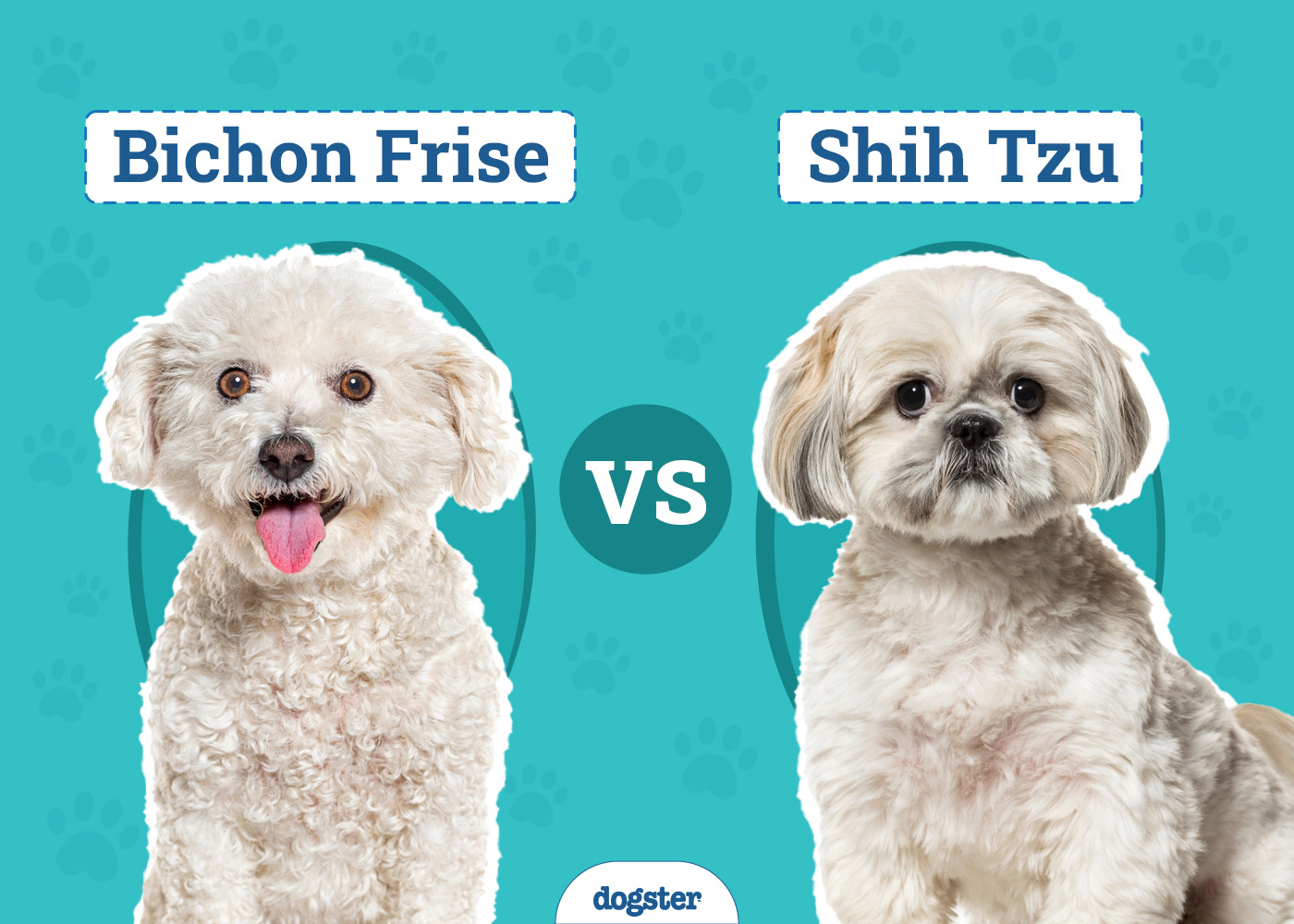[ad_1]
The Bichon Frise and Shih Tzu are playful toy breeds that make excellent pets and are loyal and affectionate. Although they were prized companions of royalty, the American Kennel Club didn’t recognize them until the 20th century. These charming lap dogs have several similarities, but their slight differences may help you decide which breed is ideal for your home.

Visual Differences
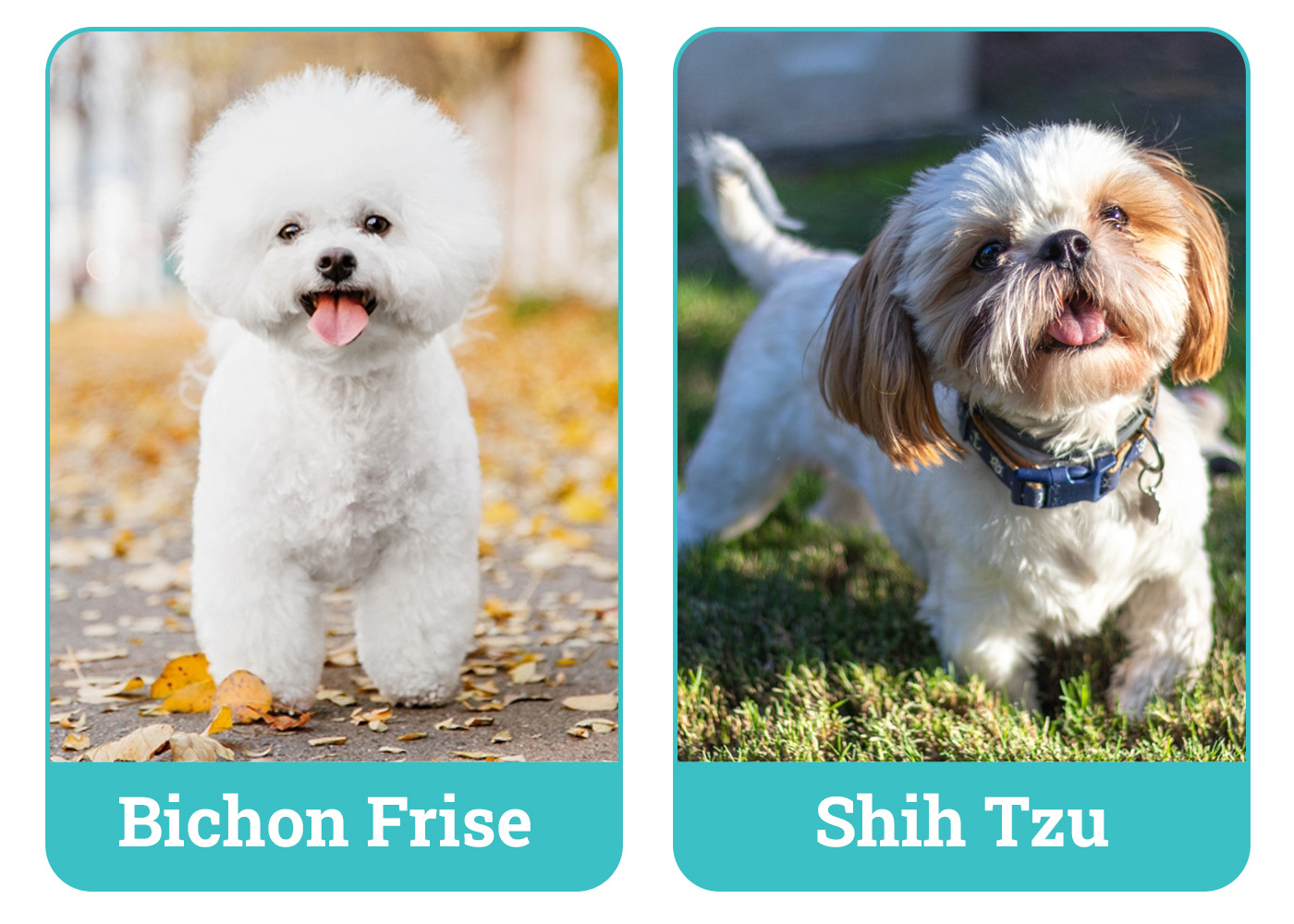
At a Glance
Bichon Frise
- Average height (adult): 5–11.5 inches
- Average weight (adult): 12–18 pounds
- Lifespan: 14–16 years
- Exercise: 30 minutes a day
- Grooming needs: High
- Family-friendly: Yes
- Other pet-friendly: Yes
- Trainability: Intelligent, playful, loyal, eager to please
Shih Tzu
- Average height (adult): 9–10.5 inches
- Average weight (adult): 9–16 pounds
- Lifespan: 10–18 years
- Exercise: 30 minutes a day
- Grooming needs: High
- Family-friendly: Yes
- Other pet-friendly: Yes
- Trainability: Loving, bright, loyal, calm

Bichon Frise Overview
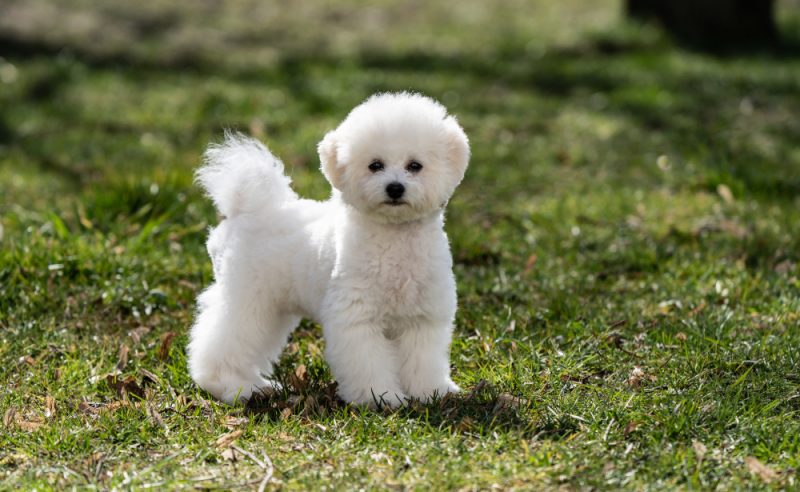
The Bichon Frise is a member of the Barbichon group, which includes the Maltese, Bolognese, and Havanese. Although their origins are unknown, they may have been developed in Tenerife, the largest Canary Island, by crossing Water Spaniels with Standard Poodles. Starting in the 13th century, Bichon Frises became the treasured pets of French, Spanish, and Italian Nobles.
However, their popularity declined after the French Revolution, and many accustomed to living pampered lives became homeless street dogs. Ordinary citizens used them as street performers and circus dogs, and like Poodles, their white coats were easier for circus audience members to see from long distances.
World War I and II had profound effects on the Bichon Frise, and they nearly disappeared, but dedicated enthusiasts in Belgium and France collected the stray dogs to breed them. In 1956, a French couple brought six Bichon Frises to the United States and started a breeding program.
After decades of breeding and establishing a breed standard, the Bichon Frise’s population increased, and they were finally accepted into the Non-Sporting Group of the AKC in 1973. They’re now talented show dogs and beloved family pets, and they’re the 44th most popular dog in the United States.
Personality / Character
The Bichon Frise is an affectionate canine who loves spending time around their family. They get along well with children and other pets and are always ready to play games or relax on the couch with their favorite humans. They’ll bark to alert their owners of approaching strangers, but they’re not aggressive and typically make friends quickly with unfamiliar humans.
As lap dogs who have always worked closely with humans, Bichon Frises are eager to please and dislike being away from their family. They’re vulnerable to separation anxiety, but with enough training and socialization, they can learn to tolerate short periods away from their owners.
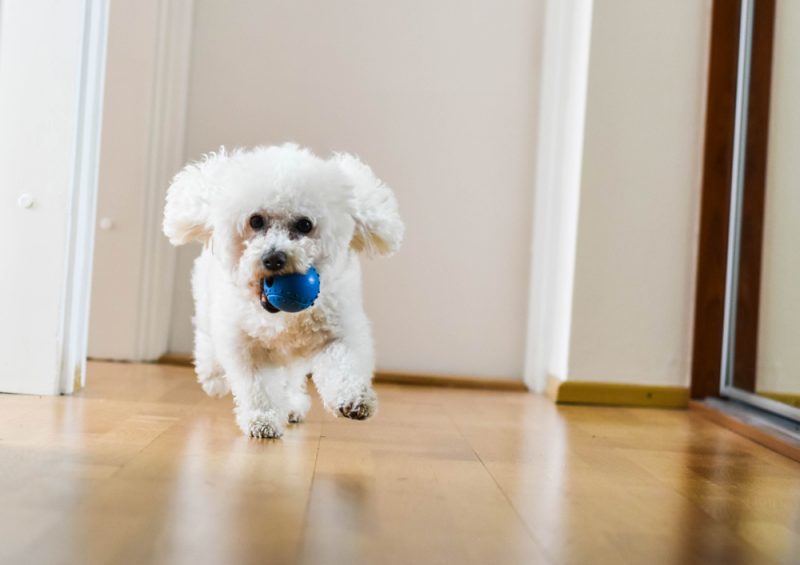
Training
Training a Bichon Frise is relatively simple since they’re responsive to commands and aren’t distracted easily by outside stimuli. However, due to their tiny bladders, they can be challenging to potty train. As puppies, they must be taken outside after every meal, and most need potty breaks every hour.
They’re champion show dogs, and besides the basic commands, Bichon Frises can learn to perform tricks, such as dancing. They’re sensitive dogs that respond best to positive reinforcement training.
Health & Care
The Bichon Frise is a healthy breed that can live up to 16 years but is vulnerable to dental and eye problems. Early tooth loss is particularly common, but daily tooth brushing and veterinary checkups can reduce the chances of periodontal disease.
Patellar luxation, cataracts, skin allergies, and bladder infections are relatively common, but providing a healthy diet, daily exercise, and maintaining veterinary appointments can ensure they stay healthy. The Bichon Frise may be ideal for allergy sufferers since they rarely shed, but their coat requires daily maintenance. Brushing their hair every day and trimming it every 3 weeks will prevent tangles and mats from developing. Keeping the hair near their eyes short is essential to prevent irritation and infections.
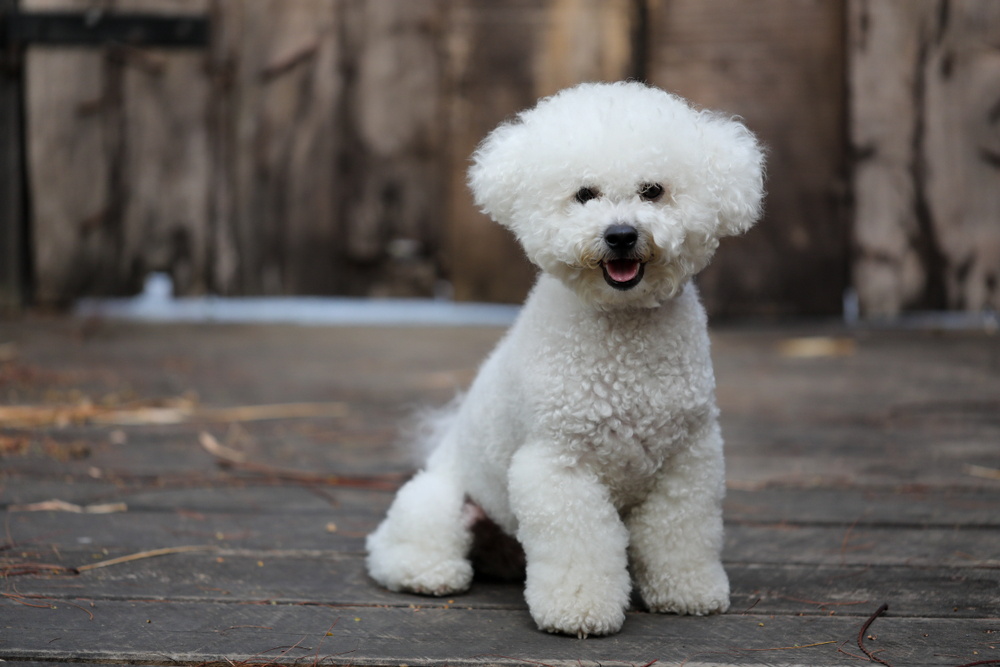
Suitable For:
The Bichon Frise doesn’t need a home with a large backyard, and they are perfect for apartment dwellers. Although they need daily exercise, a few short walks and play sessions are enough to keep them fit. They’re suitable for families with young children and other pets, but they aren’t ideal for owners who spend a lot of time away from home.
Pros
- Friendly and loyal
- Gets along with children and pets
- Easy to train
- Can compete in dog shows
Cons
- Vulnerable to separation anxiety
- Requires extensive grooming
- Potty training can be difficult

Shih Tzu Overview
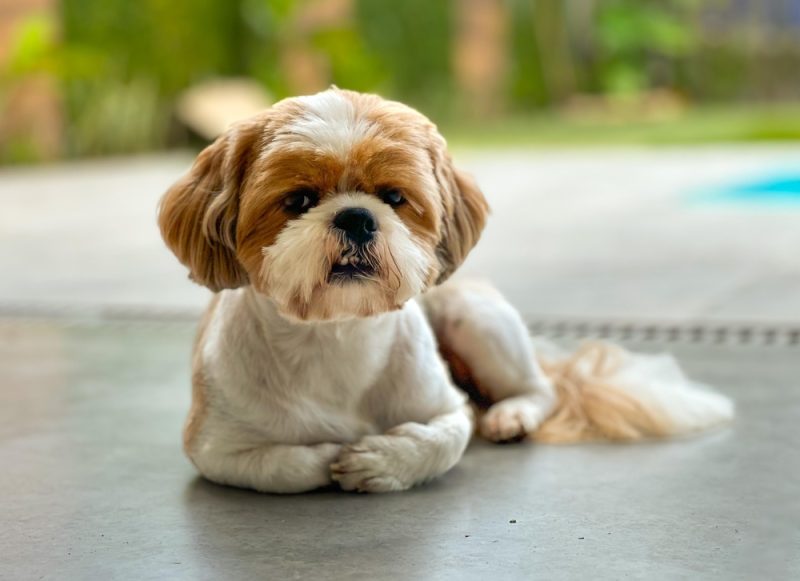
Like the Bichon Frise, the Shih Tzu has royal origins. They may have been developed in Tibet, but they were admired by Chinese royalty. They embraced their roles as royal watchdogs, and their loud barks alerted imperial rulers to approaching visitors. Buddhism had a profound effect on the breed, and royal breeders strived to give the dogs a lion-like appearance.
Eventually, breeders in China began crossing them with Pugs and Pekingese, which gave them a more elegant conformation. Although Chinese rulers often gave dogs as gifts to foreign dignitaries, the Shih Tzu didn’t leave the country until they were imported to Great Britain in 1930. After the death of Empress Tzu Hsi, who bred Pugs, Pekingese, and Shih Tzus, and the chaos of the Chinese Revolution, the breeding program fell apart.
The Shih Tzu nearly went extinct, and only 14 dogs remained by the mid-20th century. British enthusiasts began developing a breed standard and settled on the name “Shih Tzu,” which means “little lion” in Mandarin. Today’s purebred Shih Tzus can trace their lineage back to the original 14 dogs.
After World War II, American GIs brought Shih Tzus back from Europe and Asia, and the AKC eventually recognized them as an official breed in 1969. Luckily, the Shih Tzu’s population has increased, and they’re now the 20th most popular breed in the United States.
Personality / Character
With a 1,000-year history of guarding and comforting humans, Shih Tzus are incredibly affectionate and loyal to their owners. They enjoy playing with children, and they get along with other pets. Shih Tzus love to be the center of attention and struggle when left alone for long periods.
Socializing and training them when they’re young can reduce problematic behaviors, such as digging and barking excessively. They enjoy playing games and training with their owners but only need around 30 minutes of daily exercise.
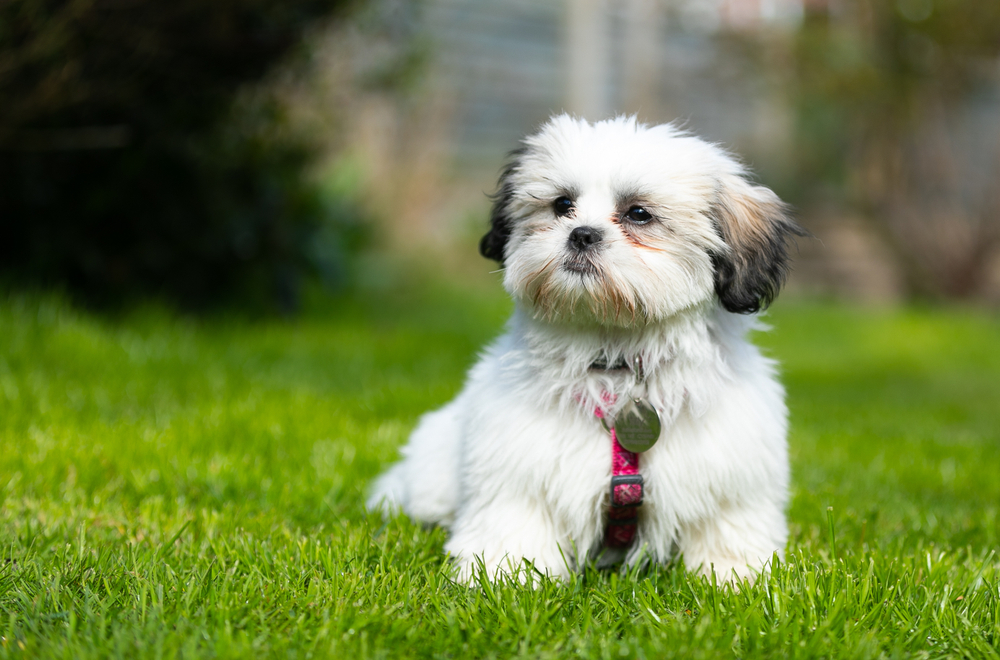
Training
Shih Tzus respond well to training since they’re eager to please their owners. Despite their gorgeous coats and elegant hairstyles, they’re muscular little dogs that excel in agility events. They can learn commands easily and enjoy performing tricks for a captive audience.
In 2014, a Shih Tzus became the first of their kind to win an agility and champion title. Positive reinforcement is the preferred technique to train them, and most are highly motivated to perform when they’re rewarded with their favorite treats.
Health & Care
Although they’re athletic canines, Shih Tzus are brachycephalic. Their short muzzles make it harder for them to run in scorching temperatures, and they’re more likely to suffer from heatstroke. Walking them early in the morning and late in the evening in summer is vital to prevent overheating.
Shih Tzus are relatively healthy and can live up to 18 years, but maintaining veterinary checkups, providing a healthy diet, and exercising them daily is crucial to their health and happiness. They’re prone to the following health conditions:
- Obesity
- Periodontal disease
- Hip dysplasia
- Patellar luxation
- Brachycephalic syndrome
- Glomerulonephritis
- Ear infections
- Eye problems
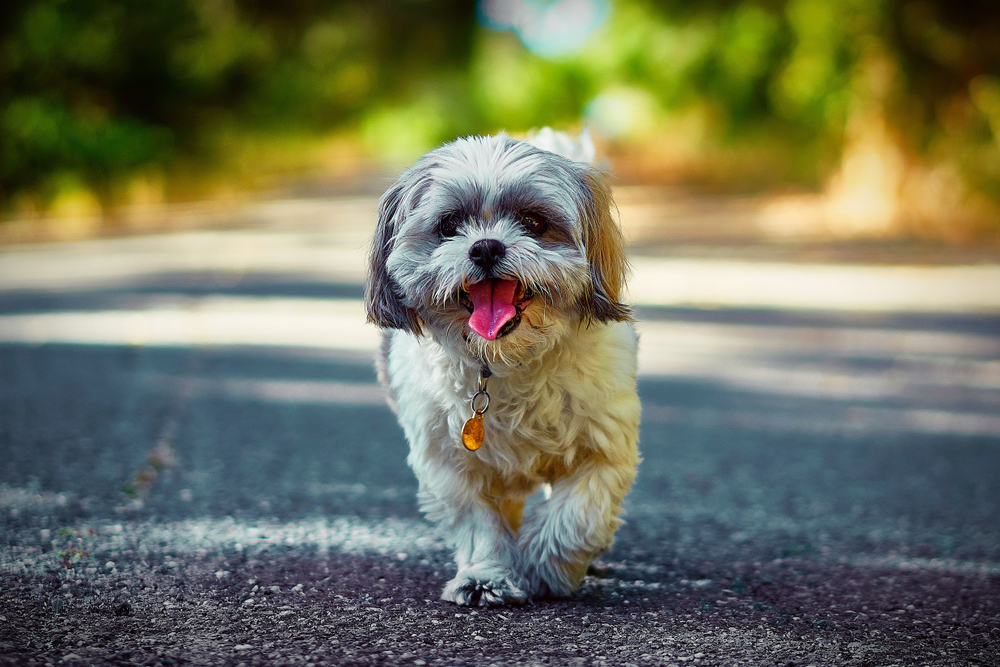
Suitable For:
Shih Tzus make great pets for individuals and families who spend most of their time at home. Their compact size and moderate energy levels allow them to adapt to various lifestyles; they’re suitable for apartment dwellers as long as their barking is controlled. They also get along with kids and other pets. Mild allergy sufferers may be less affected by their hypoallergenic coats, but they require frequent grooming to stay healthy.
Pros
- Loving and loyal
- Enjoys playing with kids and other pets
- Can compete in agility events
- Responds well to training
Cons
- Extensive grooming is vital
- Cannot be alone for long periods
- Can overheat quickly due to short muzzle

Which Breed Is Right for You?
You may have trouble deciding which breed is suitable for your home since the Bichon Frise and Shih Tzu are so similar and have many appealing traits. They both love children and enjoy spending most of their time with their owners.
They enjoy participating in training sessions and are fierce competitors in dog shows. Due to being a brachycephalic breed, Shih Tzus cannot tolerate hot weather, and if you live in a tropical climate, the Bichon Frise may be a better pet. However, you’ll have a loyal, playful pup regardless of which breed you select.
[ad_2]
Source link
